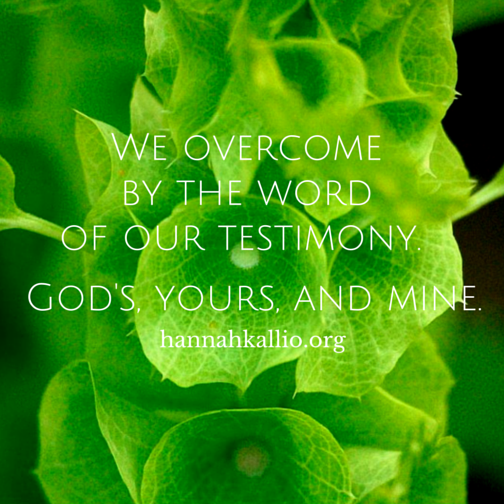You know the feeling: you’re listening to another woman share a powerful testimony, and your heart sinks. There’s some jealousy there, but it’s more than that. You feel guilty because you should be happy for her, disappointed you’re not experiencing the same victory, and angry it’s taking God so long to answer your prayers. Maybe it’s been so long that you feel forgotten.
I used to dream of telling my story in a way that would bring freedom and healing to other women. But often when I shared my testimony, I saw the light in their eyes go out. The distance my story created between us was palpable, because they couldn’t relate. They’d say, “Wow, you have an amazing testimony!” but I felt like an outcast.
In God’s family, we tend to glorify suffering, and distance ourselves from those going through it. We rally around people experiencing tragedy publicly and materially (which is good), but emotionally they’re isolated. When people appear successful, we might idolize them, but in a way that still creates a distance and limits relationship.
Waaaait a minute. Doesn’t the Bible say to rejoice with those who rejoice, and weep with those who weep? Doesn’t it say victorious believers overcame by the blood of the Lamb and by the word of their testimony? My testimony isn’t that harmful, is it?”
Yes, yes, and yes.
We all have a limited perspective. I can easily reach false conclusions about what happened and (especially) why. If I frame my story in a way that’s not entirely true, those misconceptions get magnified as the story is shared. It’s like a damaging game of telephone.
And as much as I may want my story to serve my listeners, in reality I’m making it about me. This feeds the celebrity culture steadily robbing the church of its vitality.
That’s why I’ll never share “my” story again. Instead, I’m committed to sharing our story. As in, God’s yours, and mine. Because if we’re one body, my victory is yours. If we’re family, your suffering is mine.
We help each other make sense of our story by looking past distracting details and finding the universal principles that propel us all deeper into Him. Individually we see in part, but together we have the mind of Christ.
We overcome by the word of our testimony: God’s, yours, and mine.

The next time you listen to a testimony, ask God,
What lesson do you want me to take from this part of our story?
The next time you have an opportunity to share a testimony, ask God ,
How can I make this about us?
How does what you’re doing in my life overlap with our story as a body?

